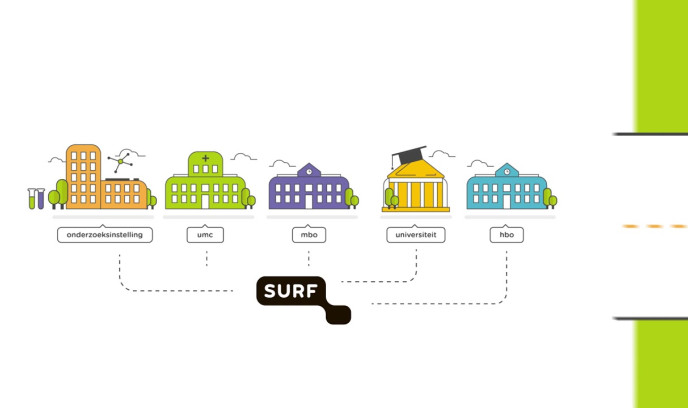IT procurement
Joint purchasing on the best terms

Advantages
Best (price) conditions
Current laws and regulations
Contract management
Knowledge sharing
Single point of contact
Have a question about ict procurement? Get in touch.

Through a European portal, we announce our intention to procure a particular service on behalf of the institutions. All interested vendors can submit a tender. Based on predetermined evaluation criteria, we choose a winner.
Want to read more about procurement processes? Then take a look at this page on European tendering.
Model contract
We make agreements with a provider, for instance on price, privacy and liability. We preferably do this on behalf of an interested institution. A model contract results from these agreements as the basis for the standard available model contract, which we offer free of charge.
Curious about the conditions for a model contract? Then take a look at this page where we discuss model contracts in more detail.
DPS
A DPS stands for 'Dynamic Purchasing System'. It is an electronic marketplace where a contracting authority can issue a call for tender and market players can then bid for it. The contract goes to the best tender. We assess whether vendors bidding for a tender are admitted to the DPS. Your institution places a functional request for a product category independently in the DPS and receives bids from vendors within this product category. Your institution then evaluates these tenders itself and decides with which vendor to conclude an agreement. We offer support in this process.
Want to know more about how a DPS works? Check out the benefits and current product categories, among other things, on our in-depth page about a DPS.
Which procurement method suits you?
We would like to provide all institutions, regardless of size, with appropriate procurement solutions. We offer three different procurement options: tender processes, model contracts and the DPS (Dynamic Purchasing System). Watch the video for the different options.
Purchasing opportunities
More information?
On our theme page, you will find more information on purchasing options.

